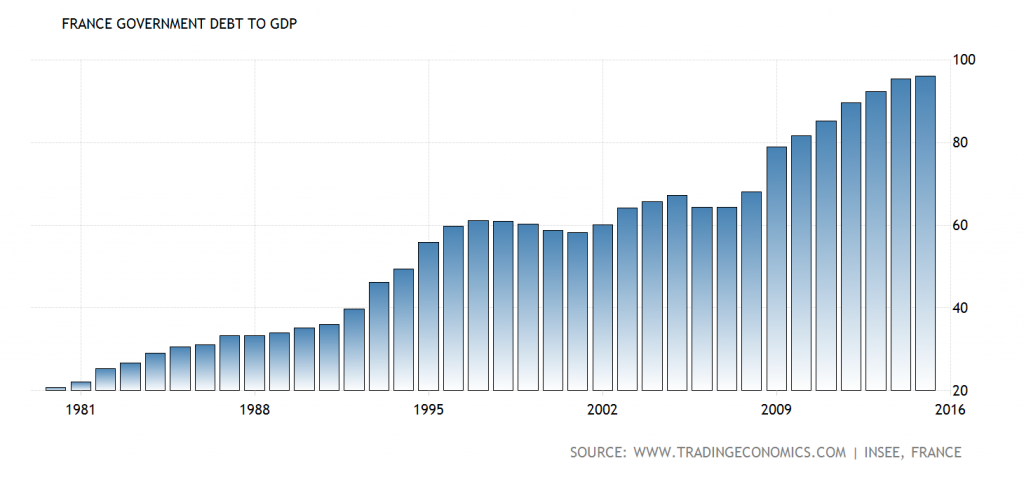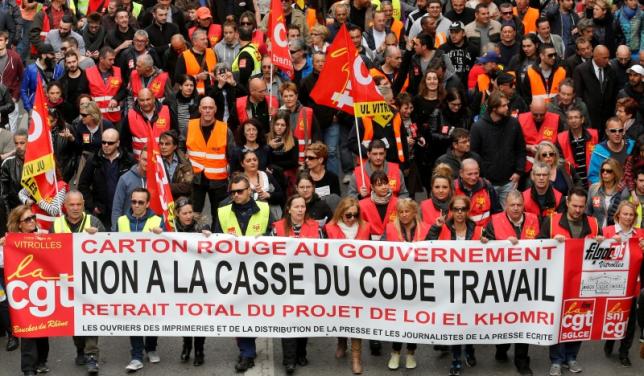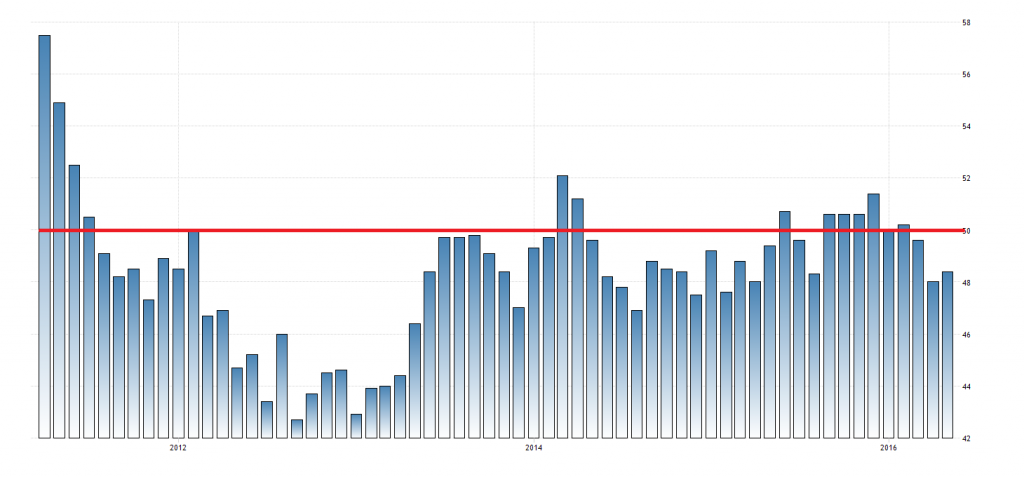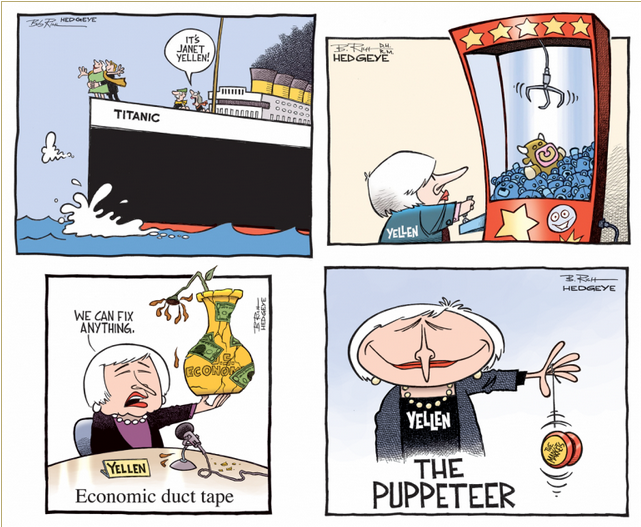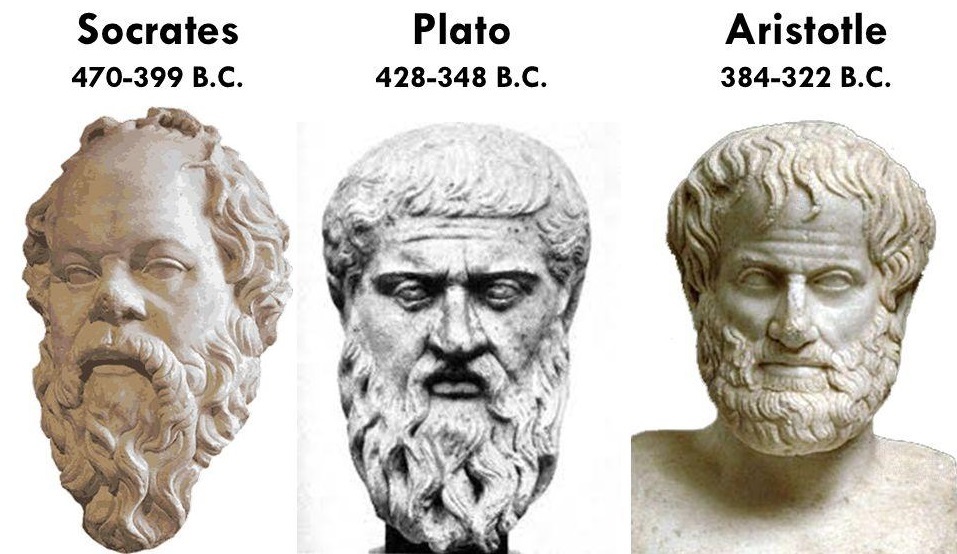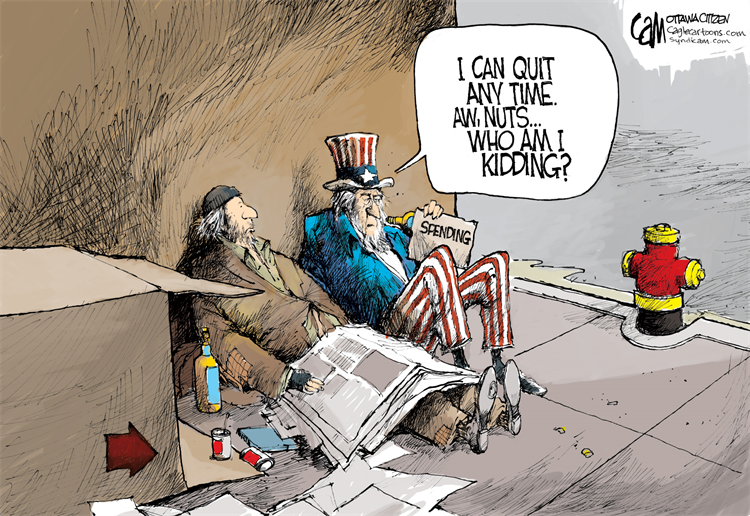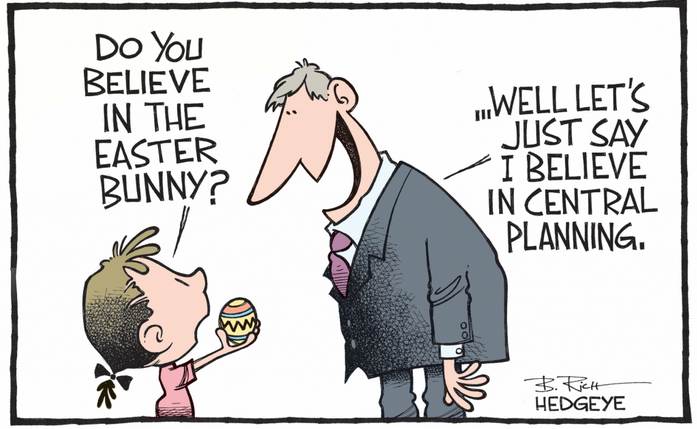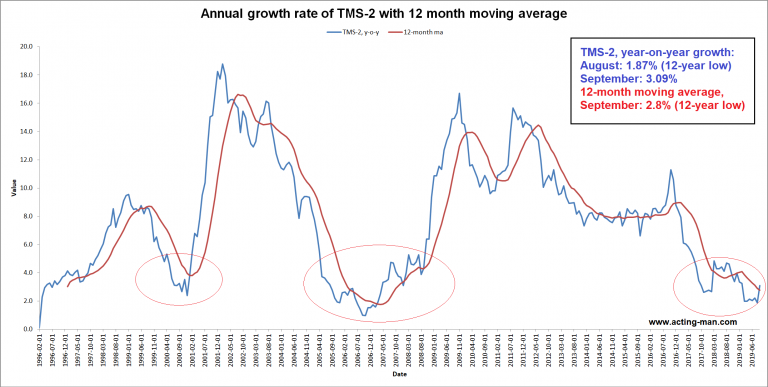Summary
People have become used to the idea that the State is their sugar daddy. Many apparently believe that it has some undisclosed, infinite stash of resources at its disposal which it can shower them with at will. The reality is unfortunately different.
Hollande Threatens to Ban ProtestsBrexit has diverted attention from another little drama playing out in Europe. As of the time of writing, if you Google “Hollande threatens to ban protests” or variations thereof, you will find Russian, South African and even Iranian press reports on the topic. Otherwise, it’s basically crickets (sole exception: Politico). Gee, we wonder why? Given that France is under a “state of emergency” since last year’s terror attacks in Paris, it is presumably easy for Hollande to ban demonstrations by decree, from a legal perspective at least. It seems unlikely though that a ban would actually stop the protesters. What is Hollande going to do if they just continue to strike and hold demonstrations? Invade France? Arrest hundreds of thousands of people? These protests have been going on for more than a month now. What makes this confrontation so interesting is that Mr. Hollande himself started out as a devoutly committed socialist. Upon coming to power, he immediately introduced a 75% “super-tax” on the rich (causing a number of them to simply pack their bags and leave) and let loose his far-left industry minister Arnaud Montebourg, who’s job it apparently was to spout outdated Marxist slogans and micromanage France’s industries – especially the dying ones. |
|
| For a reminder of the days when a gung-ho Montebourg set out to show the world that socialism works after all (if only it is done right!), see “Moving France toward a Command Economy”. Somehow, he failed to deliver the desired results though. Big surprise! The whole world was vastly astonished.
Once Mr. Hollande’s popularity had fallen to such a low level that one would have arrived at a round 100% by adding his approval rating to Vladimir Putin’s (Putin scored 87%, Hollande 13%), he apparently decided he no longer had anything to lose. Montebourg and a number of other cabinet members were kicked out and replaced with more centrist “technocrats” who were tasked with getting the French economy out of its rut. The attempt to slightly reform the “code du travail” is part of the new program. The proposed modifications are already a compromise, the result of backtracking under the pressure of all sorts of interest groups in Hollande’s own party. It took the new cabinet an eternity to even get to this point. The reforms are halfhearted market liberalization measures that can at best be called “better than absolutely nothing”. |
|
Socialists Battling Over the Remaining Scraps of WealthThe problem is though: the fact that socialism evidently doesn’t work, doesn’t mean people will want to give up on it – especially not if it works for them personally. In this case this definitely applies to France’s union leaders, whose organizations represent almost a State-within-the-State. Although the French unions have lost 80% of their membership over the years, they continue to wield immense political power. They don’t really need members, as they are partly funded by the State and partly by employers, who are coerced by law to hand over truly stunning amounts of money to them (e.g. a single large company like the power utility EDF is forced to pay more than $700 million to the unions per year). The only sector in which union membership hasn’t collapsed is the public sector. It is a very good bet that this is the sector of the economy in which the least amount of productive work is performed. For those ensconced in it, it is a highly privileged sinecure well worth fighting for though. Given that much of France’s transportation system is state-run, the unions retain the ability to bring the entire nation literally to a standstill – a fact much feared by politicians. Voters hate being unable to commute, and obviously, economic output and tax revenues tend to suffer greatly every time the union bosses give the order to paralyze the transportation system. No government has as of yet proved capable of reforming the system or diminishing the power of the unions in the slightest. |
|
| Although is is probably fair to say that Hollande is just as economically illiterate as the vast majority of France’s political-bureaucratic nomenklatura (the mind of his conservative predecessor Nicolas Sarkozy was equally unblemished by even the slightest grasp of economics), he seems to have realized that business as usual is a dead end and apt to lead to country to ruin.
He has in other words understood something many of his clients – the people who voted him into power – still fail to understand. Kill the goose laying the golden eggs, and you’ll soon run out of golden eggs. The protests, and the fight between Hollande’s government and the unions is all about the distribution of wealth. They have seemingly forgotten that it has to be produced as well. Once the golden goose is dead, one is simply fighting over scraps. |
|
Capital Accumulation is the Only Way to Improve Living StandardsActually, the battle between different strands of French socialism/ welfare statism over the remaining scraps of wealth is nothing new or special. We have seen similarly inspired protests and riots in Spain, in Greece and other places. On the one hand, it is great fun to see socialists fighting amongst each other, but unfortunately it is also a symptom of what is coming – and what is coming is not going to be fun at all. Let us think about this a bit. To paraphrase the late Margaret Thatcher, what we are in essence witnessing in many European welfare states these days is what happens when socialists are running out of other people’s money. To some degree the political elite that forms the leadership of Europe’s welfare states and the bureaucratic Leviathan in Brussels may realize that the whole enterprise has become unaffordable. The same is however not true of a vast portion of the electorate. Regulations such as France’s code du travail are an attempt to suspend the laws of economics. One might as well issue a political decree suspending gravity, or prohibiting birdsong between 6:00 am and 7:00 am (the latter ordinance does in fact exist in some US town, we don’t recall which one. The birds have reportedly ignored it so far). As Mises notes in Human Action with respect to such legislation:
In short, the only thing that can lastingly improve the living standards of workers is an increase in the capital invested per worker. If one introduces a law that e.g. introduces minimum wages above the level that can be supported by the market, one simply ends up creating institutional unemployment – less skilled workers will become unemployable, because employing them will produce losses. All interventions that end up restricting production will slow the accumulation of capital and make the situation more difficult. However, to a great many people this is apparently not clear. For decades, politicians have made promises and increased the unfunded liabilities associated with these promises. These promises are predicated on continued growth of real wealth that can be confiscated and redistributed. In Western welfare states, people now insist that these promises be fulfilled – whether it is possible to do so or not. |
|
The Terminal Phase of the Welfare StateSince the growth of real wealth has slowed dramatically as a result of decades of intervention, politicians have resorted to borrowing more money to keep the show on the road – as inter alia evidenced by the deterioration in France’s public debt-to-GDP ratio. Central banks are supporting this growth in public debt by printing ever more money – but it should be obvious that neither the one nor the other can possibly solve the problem. It will only hamper real wealth generation even more. An enduring myth is also that it could all be fixed if only the wealth of the rich were confiscated and redistributed – but Mr. Hollande already tried that, and it predictably failed to bring about the desired results. This recent experience has done absolutely nothing to kill the myth though. For instance, the supporters of Bernie Sanders in the US are evidently blissfully unaware of the French example, or choose to simply ignore it. The same is true of the supporters of Podemos in Spain. To summarize: the reality that the growth of real wealth has either slowed to a crawl or even reversed is clashing with the dreamworld sold by the political class over the years in order to buy votes. As H.L. Mencken said: “[G]overnment is a broker in pillage, and every election is a sort of advanced auction on stolen goods.” Those who elected Mr. Hollande did so because they expected him to deliver the loot. His problem is that he’s running out of stuff to loot. As noted above, it would by funny in a gallows humor sort of way, but it really isn’t. The electorate in many countries rightly feels betrayed by the political elite. Unfortunately, instead of demanding more economic freedom, it has reacted by looking for a “better sugar daddy”. |
|
|
Thus the rise of far-left and far-right populist parties in Europe, whose leaders promise to be better at delivering the loot. What unites their economic programs is utter economic illiteracy. For instance, Juan Carlos Monedero, the chief economic advisor of Podemos chief Pablo Iglesias in Spain used to advise Venezuela’s late leader Hugo Chavez. The party’s economic program reads as though it has been made up by little children – it proceeds from the assumption that prosperity can be obtained by political decree. In fact, the party seems to believe that even in a country on the brink of insolvency, all that it needs to do is pillage and redistribute more forcefully. It simply ignores that the golden goose, if it hasn’t died yet, is in a coma in the emergency ward. Now consider: there are protests in France over just a few tiny tweaks to the country’s labor legislation, that are regularly turning into violent riots. What is going to happen once the situation becomes more serious, as it inevitably will if economic growth is not restored? Does anyone believe the current crop of politicians has the intellectual wherewithal and the intestinal fortitude to actually do what needs to be done to enable a return to sound economic growth? It seems far more likely that they will continue to muddle on – and as much as they will deserve their eventual downfall, what is going to rise in their wake promises to be even worse. It is no wonder that a great many British citizens want their country to disassociate itself from the EU. Unfortunately for the citizens of the continent, if the UK leaves, they will lose one of the few supporters of subsidiarity and economic liberalism in Brussels, which is only going to hasten the sinking of the ship. |
|
ConclusionMaybe we are too pessimistic, but we see no evidence that the clash between the sclerotic political establishment and the increasingly unsatisfied electorate in many parts of the developed world is likely to bring about an increase in economic freedom or lead to implementation of more sensible economic policies. As the much-heralded “third way” (the mixture between socialism and a market economy that was supposedly going to lead to Utopia) is spiraling toward insolvency, we are more likely see increasingly violent confrontations and more and more repression in response. People have become used to the idea that the State is their sugar daddy. Many apparently believe that it has some undisclosed, infinite stash of resources at its disposal which it can shower them with at will. The reality is unfortunately different.
Charts by: TradingEconomics |
Full story here Are you the author? Previous post See more for Next post
Tags: newslettersent,On Economy,On Politics











